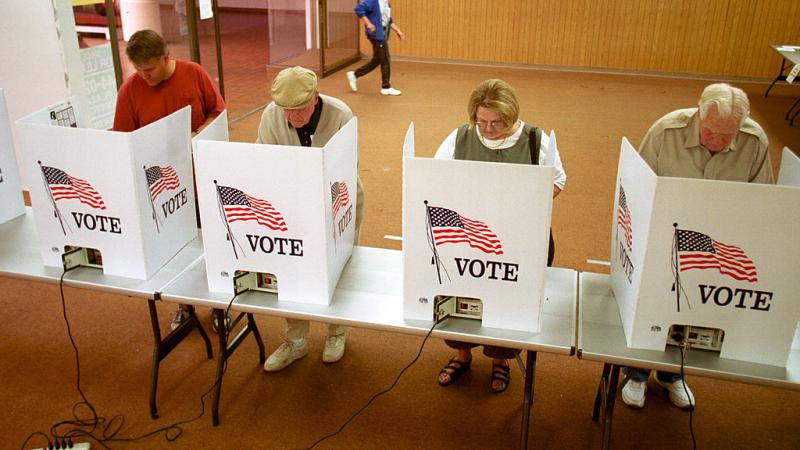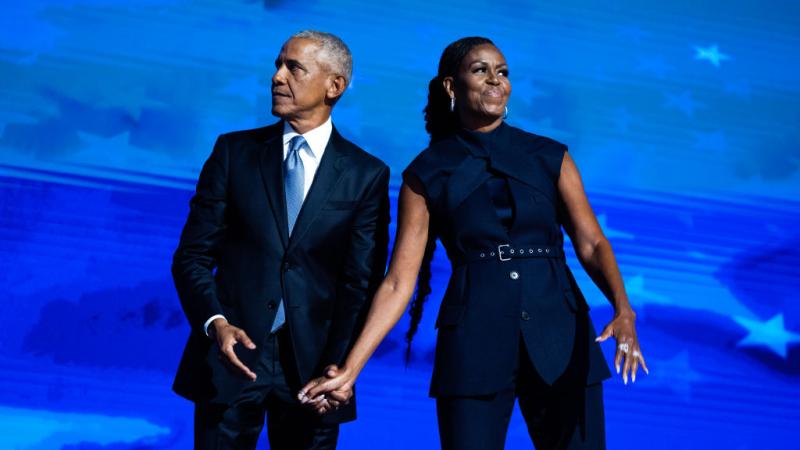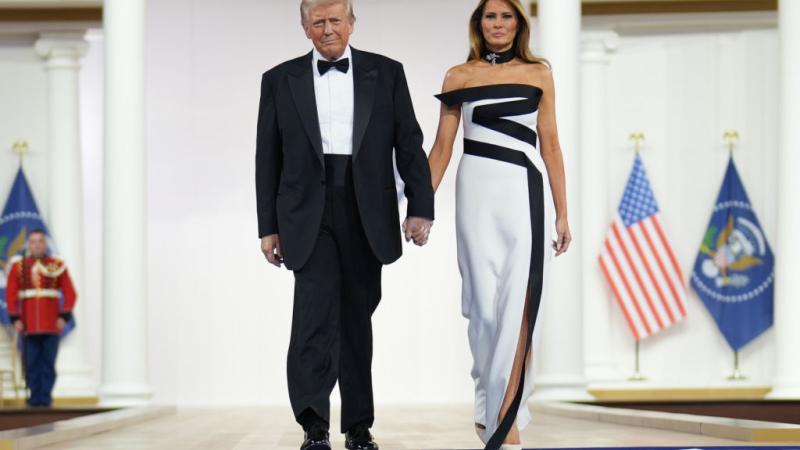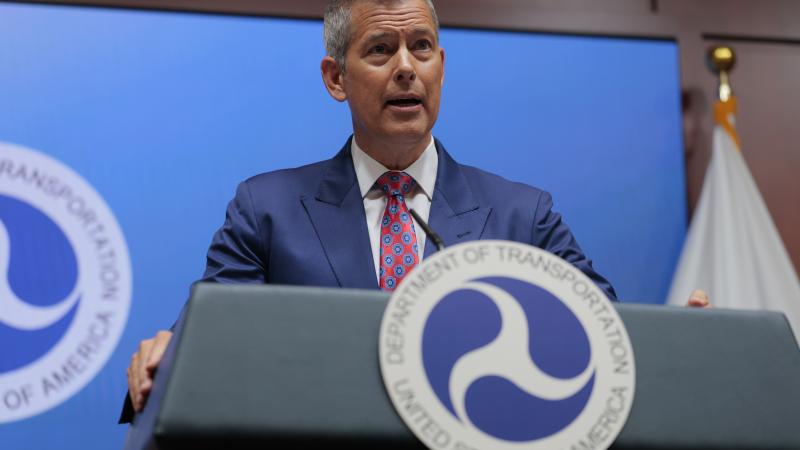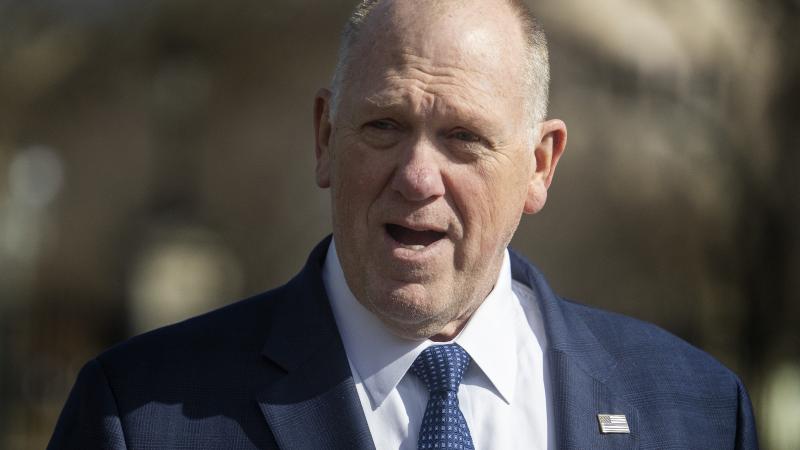Election lawsuits from both left and right are shaping the 2024 presidential election
A Delaware court has ruled that state laws allowing for permanent absentee voting and early voting violate the state constitution. Lawfare has become a nationwide political tactic.
A recent Delaware court decision shows that election lawsuits being brought by plaintiffs on both the left and right sides of the political aisle will have significant impact on the 2024 presidential election in November.
Several cases are going before courts this year regarding election statutes, procedures, and candidates as advocates across the political spectrum seek to shape the rules that guide elections. While one such case was decided last week, several others are still ongoing.
The Delaware Superior Court ruled Friday that a 2019 law passed by the state legislature, which allows early voting up to 10 days before "election day," violates the state constitution. The court held that the General Election is to be held on one day.
The court also found that the state's Permanent Absentee Voting Statute violates state law by allowing voters to be placed on a permanent absentee voting list where ballots would automatically be sent to them for each election. The voting laws were challenged in court by the Public Interest Legal Foundation.
The group initially brought the lawsuit in 2022 on behalf of Michael Mennella, an inspector of elections for the Delaware Department of Elections.
The court’s decision directly impacts the November general election, which is less than nine months away. By invalidating the election statutes, the court prohibited both the 10 days of early voting for the general election and placing voters who are eligible to vote in the general election on a permanent absentee voter list.
“This decision invalidated Delaware laws that allowed for early and permanent absentee voting," PILF President J. Christian Adams said Monday. "States cannot pass election laws that conflict with their state constitution. This decision is a win for the rule of law.”
The ruling was similar to a 2022 victory for PILF, which won a lawsuit in the state Supreme Court on behalf of Mennella regarding a state law allowing same-day voter registration and universal vote-by-mail. The state's high court ruled that the law violated the state's constitution just before the November general election.
Delaware Attorney General Kathy Jennings, whose office defended the state laws in court, said Tuesday during a press conference that she has "directed the [Delaware] Department of Justice to take all necessary steps to appeal the Superior Court’s ruling. We will file our appeal quickly and intend to request a decision from the Delaware Supreme Court.”
Both Democrats and Republicans in the state legislature have said that they’re looking to propose and pass constitutional amendments to allow for early voting.
Following the Delaware court’s decision, Rep. Lisa Blunt Rochester, D-Del., wrote in a statement on Saturday that this “is another reminder of where we are at this moment — no matter where you live in our country, Republican extremists will stop at nothing to attack our access to the ballot box.” She added that the ruling is an “urgent reminder that we need federal voting rights protections.”
At the same time, Democrats and left-leaning groups are also engaged in election lawsuits regarding candidates and state election procedures in order to obtain an advantage.
In Pennsylvania State Conference of the NAACP v. Chapman, the plaintiff sued the then-acting secretary of the commonwealth in 2022 regarding Pennsylvania’s decision to void mail-in ballots that are either missing a date on the outer return envelopes or have an incorrect date.
Pennsylvania counties were ordered by a lower court following a Republican lawsuit in 2022 to reject undated or incorrectly dated mail-in ballots. However, the issue is still being litigated and has reached the U.S. Court of Appeals for the Third Circuit.
The NAACP argues that the mail-in ballots are valid – regardless of the incorrect or missing date – and should be counted.
Criminal lawsuits are also part of the tactic. Fulton County District Attorney Fani Willis charged former President Donald Trump and 18 others as co-conspirators under the Racketeer Influenced and Corrupt Organizations Act, among other Georgia state counts, for their alleged efforts to overturn the 2020 election results in favor of Trump.
Three former Trump attorneys, Jenna Ellis, Sidney Powell and Kenneth Chesebro, as well as Republican poll watcher Scott Hall, have all pleaded guilty in the case, while everyone else who was charged has pleaded not guilty.
Willis is currently facing potential disqualification from the case against Trump because of a romantic relationship between her and her special prosecutor. Willis has also been accused of giving her paramour special treatment in terms of hiring and pay.
In 2020, there were as many as 400 lawsuits brought by both Republicans and Democrats regarding election procedures and laws as election administration was quickly changed during the COVID-19 lockdowns leading up to the presidential election.
This year, new election lawsuits are focusing on candidate eligibility, various changes in election law, and alleged violations of election laws. These lawsuits may greatly impact how the 2024 presidential election will be conducted.
According to an election integrity watchdog, some election lawsuits can disrupt election administration. Jason Snead, Executive Director of the Honest Elections Project, said last month that “One of the biggest threats that we’re gonna face between now and November is gonna be just a torrent of left-wing litigation.” He said “We saw the chaos, we saw the confusion, we saw the rules changes that [Marc] Elias and his operation were able to impose on states through the litigation process of 2020. And they’re already starting that up again this year.”
“I think litigation is gonna be one of the big, big threats because you can go into the November election with the best laws on the books, but if those laws are gutted in your courts, if those laws are gutted through consent agreements between a Democrat suing a Democrat, then that law is not worth the paper that it’s written on,” Snead said.
The Honest Elections Project recommended in an election reform report that states “Ensure that elected lawmakers write election laws,” rather than courts.
The reform report states that “Legislatures should protect their constitutional authority to regulate elections by barring executive agencies from agreeing to legal settlements or consent decrees that substantively alter or weaken election laws. States should prohibit sue-and-settle litigation, in which activists and partisans sue officials to secure an agreement to ignore or effectively rewrite election law.”
The Facts Inside Our Reporter's Notebook
Links
- ruled
- brought the lawsuit in 2022
- J. Christian Adams said
- won a lawsuit
- said Tuesday during a press conference
- Democrats
- Republicans
- wrote in a statement
- plaintiff sued
- Fani Willis charged former President Donald Trump
- Jenna Ellis
- Sidney Powell
- Kenneth Chesebro
- Scott Hall
- romantic relationship
- special treatment
- as many as 400 lawsuits
- Jason Snead
- He said
- Snead said
- election reform report
- reform report states

